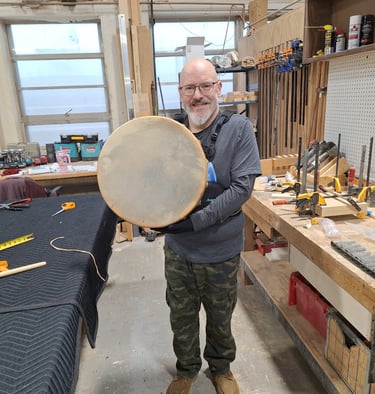The Martyrdom Olympics
Stop competing in the Martyrdom Olympics. Burnout isn’t service—wholeness is. The spark of God in you was meant to shine, not burn out.
Daniel Anderson
8/20/20252 min read


For years, I thought exhaustion was a badge of honor.
If I was tired, drained, running on fumes, that must mean I was doing something right. Serving hard. Giving everything. Being selfless.
Looking back, I realize I was basically training for the Martyrdom Olympics. My events included:
Staying late at work while everyone else went home.
Saying yes when every part of me wanted to say no.
Pretending I didn’t have needs, so nobody thought I was “selfish.”
Smiling through exhaustion like a true champion.
If burnout were a sport, I was gunning for gold. My podium moment would’ve been me, slumped over, clutching a medal in one hand and an energy drink in the other.
But here’s the punchline: nobody cares. Nobody’s handing out trophies for how much of yourself you can erase in the name of service. All I really won was resentment, bitterness, and the quiet ache of realizing I’d excluded myself from my own life.
The funny truth? Service that costs you your well-being isn’t service—it’s martyrdom. And martyrdom is just self-neglect dressed up in holy robes.
God didn’t put a spark in you so you could run it down to ashes just to prove your worth. That fire wasn’t meant to be sacrificed on the altar of “selflessness.” That’s not noble. It’s wasteful.
Real impact doesn’t come from depletion. It comes from wholeness. The days I’ve shown up rested, grounded, and honest about my own limits? Those are the days I’ve had the most to give. Because when your spark is burning steady, not sputtering out, you don’t just give—you actually light up the room.
So if you’ve been training for the Martyrdom Olympics, here’s your official retirement letter. Effective immediately, you’re out of the games. The competition’s been canceled. Nobody’s winning.
Instead, take the fire God gave you and tend to it. Keep it alive. Let it fuel you and everyone around you—not consume you.
Because people don’t need the burnt-out, hollow version of you. They need the whole, lit-up, spark-on-fire version. That’s when your presence becomes power.


